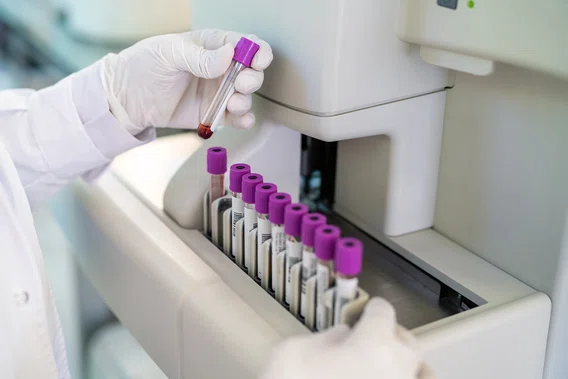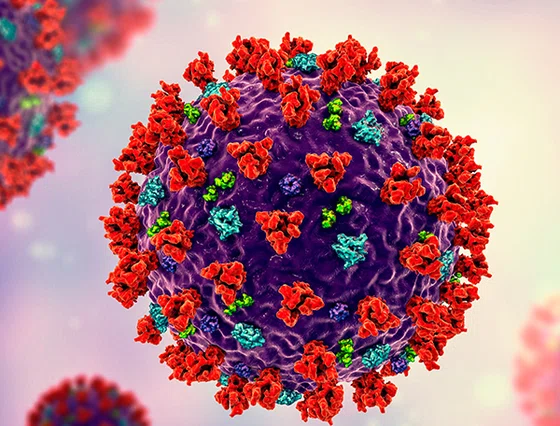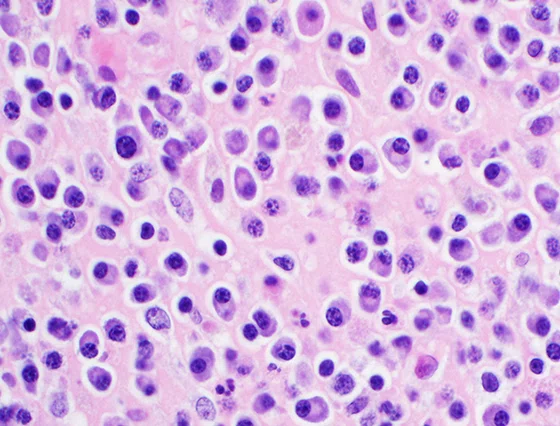


Clinical research
Houston Methodist Integral in New Initiative to Combat Antibiotic Resistance
Eleftherios Mylonakis, MD, PhD, to co-lead a newly awarded, international project to develop a set of rapid diagnostic platforms to detect antibiotic-resistant bacteria in blood samples and identify the appropriate antibiotic.
Eleftherios Mylonakis, MD, PhD, to co-lead a newly awarded, international project to develop a set of rapid diagnostic platforms to detect antibiotic-resistant bacteria in blood samples and identify the appropriate antibiotic.
On Sept. 26, the U.S. Department of Health and Human Services, through the Advanced Research Projects Agency for Health (ARPA-H), awarded $104 million* for a new project to fight antibiotic-resistant bacteria. ARPA-H was launched in March of 2022 with the mandate to find and fund high-risk, high-reward health research.
The award supports the Defeating Antibiotic Resistance through Transformative Solutions (DARTS) project, a collaboration of 25 research groups from across the U.S. and UK, including Houston Methodist. Led by Johan Paulsson, PhD, professor of systems biology in the Blavatnik Institute at Harvard Medical School, DARTS will work to develop a set of rapid diagnostic platforms to detect antibiotic-resistant bacteria in blood samples and identify the appropriate antibiotic in real time. The work will also advance insight into development of antibiotic resistance.

Close-up of a doctor looking at blood sample test tube in a machine. Getty Images
Eleftherios Mylonakis, MD, PhD, the Charles and Anne Duncan Presidential Distinguished Chair, Department of Medicine; Professor of Medicine and Chair, Department of Medicine, is a key member of the DARTS team. Mylonakis will co-lead a consortium with Kim Lewis, PhD, University Distinguished Professor and Director of Antimicrobial Discovery Center at Northeastern University. The collaboration further establishes Houston Methodist as a leading academic medical center helping address the most alarming global health threats facing patients.
Eleftherios Mylonakis, MD, PhD
The Houston Methodist Research Institute will be a key partner moving these discoveries from bench to bedside, having a role in translational and clinical development, and helping to develop the technology that results from this multidisciplinary, multi-institutional research partnership.
Eleftherios Mylonakis, MD, PhD
Charles and Anne Duncan Presidential Distinguished Chair Department of Medicine
Professor of Medicine and Chair, Department of Medicine
Providing Context
The term "antibiotic resistance" has become commonplace; it’s a looming threat we're all aware of but that's missing a practical frame of reference.
At the tail end of 2022, a groundbreaking study on global mortality from bacterial infections was published in The Lancet. Led by the Global Burden of Disease 2019 Antimicrobial Resistance collaborators, this study presented, for the first time, comprehensive global estimates of the true burden of bacterial infections. The results are sobering. The bottom line? Bacterial infections — antibiotic resistant and antibiotic susceptible — are the second leading cause of death worldwide, coming in behind only ischemic heart disease. While we can lament the long-standing underestimation of the global threat of bacteria, the reality is that those working to confront the problem face a significant lack of data. As noted in the study, "no comprehensive estimates exist covering all locations for a broad range of bacteria across major infectious syndromes. For this reason, there has been profound neglect of these pathogens, and relevant infectious syndromes, in global advocacy campaigns aiming to maximize life-saving interventions."
Of the 7.7 million deaths from bacterial infections in 2019, assessed in the study, more than half were due to only five types of bacteria:
Staphylococcus aureus
Escherichia coli
Streptococcus pneumoniae
Klebsiella pneumoniae
Pseudomonas aeruginosa
These are the microbes that will be most exacerbated by antibiotic resistance. Currently sitting in the number two spot as the cause of global mortality, bacterial infections are primed for an exponential rise to number one as antibiotic resistance increases.
Of the 7.7 million deaths from bacterial infections in 2019, assessed in the study, more than half were due to only five types of bacteria:
Staphylococcus aureus
Escherichia coli
Streptococcus pneumoniae
Klebsiella pneumoniae
Pseudomonas aeruginosa
These are the microbes that will be most exacerbated by antibiotic resistance. Currently sitting in the number two spot as the cause of global mortality, bacterial infections are primed for an exponential rise to number one as antibiotic resistance increases.
Defeating Antibiotic Resistance through Transformative Solutions (DARTS)
Taking advantage of ARPA-H's first agency-wide announcement seeking funding proposals for research to "improve health outcomes across patient populations, communities, diseases, and health conditions,” The DARTS collaborators proposed something revolutionary.
“What makes this novel is not that 25 research groups are funded to study antibiotic resistance, but that 25 groups with expertise in optics, mathematics, microbiology and medicine can come together and do that as one coordinated team,” said Paulsson, in a Harvard Medical School press release.
In an ARPA-H news release announcing the award funding DARTS, U.S. Secretary of Health and Human Services Xavier Becerra said, "Antibiotic resistance is an urgent and growing threat, and we do not currently have the tools we need to combat it. We must combine better stewardship of antibiotics with novel technologies in order to save lives — exactly what this award will do."
MRSA colonies on blood agar plate. Getty Images
DARTS will address these challenges by synergizing tools from each research group. Specifically, their approach will utilize microscopy, microfluidics, single-cell assays, and machine learning tools and mathematics. The end goal? An ultra-high throughput imaging and culturing platform to test and track billions of bacteria in real time. In other words, a rapid platform for discovery and development of novel — effective — antibiotics. They also intend for the system to be adapted for patient diagnostics to rapidly identify a pathogen and the appropriate antibiotic, enhancing the stewardship of antibiotics that remain effective.
"The Houston Methodist Research Institute will be a key partner moving these discoveries from bench to bedside, having a role in translational and clinical development, and helping to develop the technology that results from this multidisciplinary, multi-institutional research partnership," Mylonakis said.
*Exact award amounts are dependent upon meeting milestones, typical of the ARPA-H process.
Heather Lander, PhD
October 2023
Related Articles








